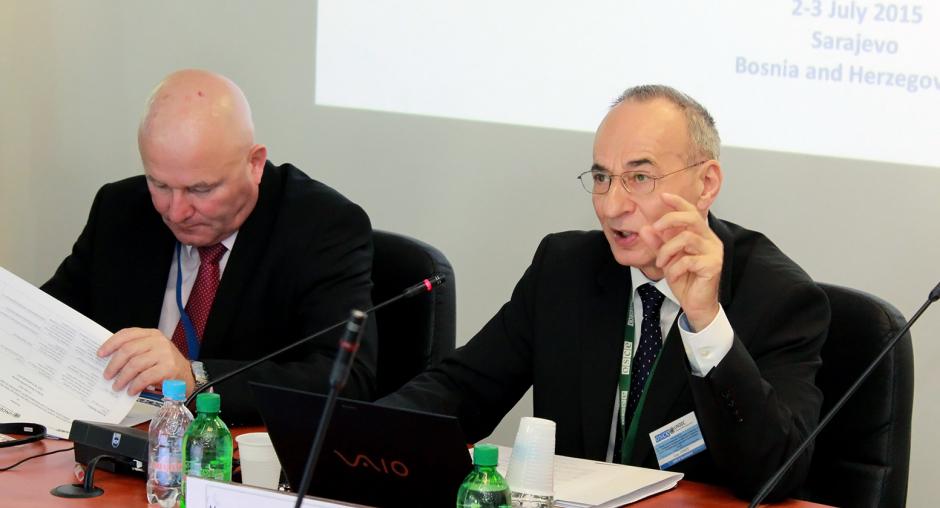OSCE supports co-operation among law enforcement agencies in South East Europe

SARAJEVO, Bosnia and Herzegovina, 2 July 2015 – Over 30 representatives from ten OSCE participating States of the South-Eastern European region and experts from nine international and regional organizations are meeting on 2 and 3 July in Sarajevo to discuss law enforcement co-operation in combating the increasing spread of new psychoactive substances.
The two-day regional workshop “New Trends and Identification Techniques in Detection of the New Psychoactive Substances (NPS) and Co-operation among Law Enforcement Agencies in South Eastern Europe” aims to strengthen the capacities of regional law enforcement bodies and their forensic units in detecting such substances and countering illicit drug trafficking. The goal is to thereby increase awareness and knowledge on how to prevent the spread of NPS.
The workshop was organized by the Strategic Police Matters Unit of the OSCE Transnational Threat Department in co-operation with the OSCE Mission to Bosnia and Herzegovina, the United Nations Office on Drugs and Crime (UNODC), and with the support of the Regional Cooperation Council (RCC).
“Over the last couple of years there has been an unprecedented increase in the number, type and availability of new psychoactive substances in Europe, and this tendency is also directly reflected in South-Eastern European region,” noted John Martin, Head of the Politico-Military Unit of the OSCE Mission to Bosnia and Herzegovina. He added that such growth of the market in new psychoactive substances will continue to pose a range of challenges for public health and drug policy over the next few years and better regional co-operation is crucial in combating this phenomenon.
UNODC Scientific Affairs Officer Conor Crean stated that “the number of NPS, such as synthetic annabinoids, synthetic cathinones, phenethylamines, and others, continues to increase and already exceeds the total number of substances under international control.”
This regional workshop will provide the participants with up-to-date information on new trends and identification techniques for detection of new psychotic substances in the region. It will also promote mechanisms of co-operation and co-ordination to enhance capacities of forensic services.
